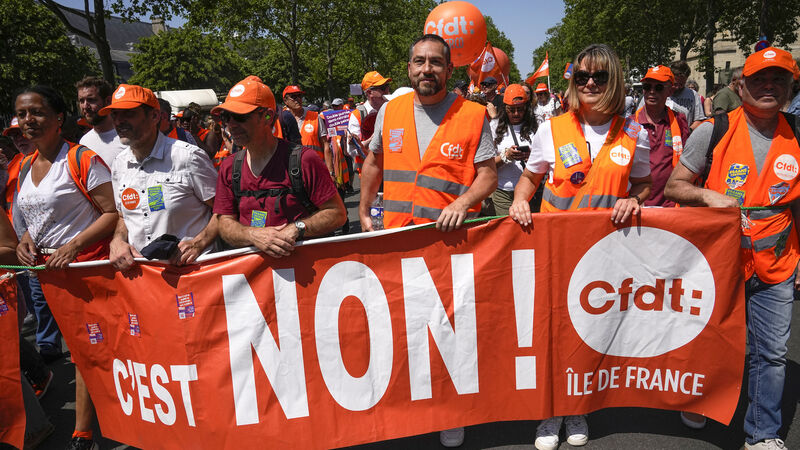Q&A: What's going on with the French air traffic control strikes?

Tuesday’s French air traffic controllers strike was part of a national day of action, the 14th in a campaign of resistance to the raising of the pension age. Picture: AP/Michel Euler
Tuesday’s French air traffic controllers strike was part of a national day of action, the 14th in a campaign of resistance to the raising of the pension age. It caused the cancellation of seven flights to and from France from Cork and Dublin, and three flights to Spain and Italy that pass over France.










